Mizzima News

(Summary:)
The junta's brutality toward its own monks has shocked the world, and clearly the Burmese army's temple of worship is not the Buddha's, but that of a warrior's - as evidenced by the grandiose statues of long gone warring rulers in the new capital.
Even after the 8-8-08 Olympics, China's misguided support for the destructive regime in Burma will come back to haunt them. As General Aung San, the architect of Burma's Independence said, "a man sows so shall he reap and that if any individual or nation oppresses or exploits another and violates natural and social justice in that way that individual or nation shall pay for that sin against justice and humanity."
Even Aung San Suu Kyi, the winner of Nobel Peace prize, said that she will never disown students who are fighting for democracy, even though they have chosen to take up arms. She also said that nothing comes free in life and, one way or another you will have to pay for everything.
An Olympian question of legitimacy for Burma's generals
Twenty years ago on 8 August 1988, the Burmese people rose up and ended the first chapter of military dictatorship in Burma, the Burma Socialist Programme Party (BSPP). But after months of countrywide anti-government demonstrations, on 18 September 1988, the army staged a coup and formed the State Law and Order Restoration Council (SLORC). After suspending the 1974 constitution, SLORC promised to conduct multiparty elections in the future.
The army announced four "duties" under SLORC Declaration No.1/88 that included the "holding of a multiparty General Election." And SLORC Law No.14/89, "Pyithu Hluttaw (Assembly) Election Law," in chapter 3, section 3, stated that the "Hluttaw shall be formed with the Hluttaw representatives who have been elected." In addition, SLORC statement No. 1/90 stated that the people's representatives must make the constitution, for the army will not accept the establishment of a government with a temporary constitution.
According to the Burma Lawyers Council (BLC), on several occasions-- including 23 September 1988, 27 March 1989, 3 July 1990, September 1990 and at General Khin Nyunt's (former Secretary (1) of the SPDC) - 100th press release held on 13 July 1990-- the army repeatedly promised that: "We, soldiers, will go back to the barracks and try to serve our original primary duties, from the past to the present day." And the army also stated that, "The parties which won the election have to draw up a constitution for the future sake of the people of Burma." But the BLC said that despite these public announcements, election results from the free and fair election in 1990 were never officially recognized by the military junta.
Today, the All Burma Monks Association (ABMA), the All Burma Federation of Students' Union (ABFSU), the '88 Generation Students and elected MPs of the 1990 general election have all rejected the result of the junta's recently tightly controlled constitutional referendum, and declared that they will boycott the 2010 general election-- the most important step of the junta's own roadmap. In New York, the International Burmese Monks Organization, led by Pinann Sayadaw, has asked international political activists to raise the issue of Burma at the 63rd session of the United Nations General Assembly, which will open on 16 September 2008.
Since the Saffron Revolution last fall, the ABMA inside Burma is still refusing alms from the military - the religious boycott commonly referred to as the "overturning of the alms bowls" still being in effect.
For some, violence against the revered Buddhist monks in Burma last September may evoke the memory of Adolph Hitler. Hitler suggested in 1937 that the best way for the British to deal with Indian Nationalism is to just "shoot Gandhi, and if that does not reduce the Indians to submission shoot a dozen leading members of the Congress and if that does not suffice shoot 200 and so on until order is restored."
Besides Hitler, Sun-Tzu's The Art of War also sheds light on the military's conduct. For it articulates that the army is established on deception, mobilized by advantage, and changed through dividing up and consolidating the troops. Sun-Tzu continues, writing that after plundering the countryside, the army divides the wealth among the troops…and after expanding territory, divides and holds places of advantage.
This warrior-philosophy helps explain the regime's conduct against its own citizens in treating them as enemies. After which, as its own political legitimacy becomes more elusive, the military's ability to extinguish potentially explosive situations becomes extremely limited, meaning that only the use of force is left to protect its power.
Sun-Tzu, the master of war, once ordered the execution of a king's two top commanders as an example to command complete obedience from the rest of the soldiers; this method may explain how the Burmese junta keeps absolute control over its foot soldiers, who were ordered to shoot monks in September.
The junta's brutality toward its own monks has shocked the world, and clearly the Burmese army's temple of worship is not the Buddha's, but that of a warrior's - as evidenced by the grandiose statues of long gone warring rulers in the new capital.
In the 12 November 2004 issue of Constitution and Legitimacy, Milan Petrovic wrote that dictatorship usually results from illegal activities, and through a coup d'état usually carried out by the army. But Petrovic continued, saying that illegal dictatorships can be both legitimate and illegitimate; a legitimate dictatorship in the past, after restoring order and performing the most urgent reconstruction of state bodies and public services, generally gave power back to civilians; but a dictatorship can also become illegitimate if the old, civilian tyranny was only exchanged for a new, military one, as when Napoleon won unlimited power in a coup not to preserve, but to overthrow the constitutional system.
But unlike a handful of other non-democratic, but still legitimate governments throughout the world, the Burmese military government has lost its legitimacy in the eyes of its people.
In speaking of the American Constitution, Richard H. Fallen, Jr. argued in the Harvard Law Review of April 2005, that even if the Constitution had been lawfully adopted, it would not provide a morally legitimate foundation for coercive action unless coercion pursuant to it could be justified morally. The legal legitimacy of the Constitution depends much more on its present sociological acceptance than upon the legality of its formal ratification. He said that the Constitution is law not because it was lawfully ratified, as it may not have been, but because it is accepted as authoritative.
The justification of the central role of the military in the future government of Burma is the need of discipline in state affairs in a country of over 100 ethnicities, said Timo Kivimäki on 11 December 2007. His comments were based on massive comparative evidence, Paul Collier had earlier claimed that societies with many, equally powerful ethnic groups are no more war prone than homogenous societies. And thus Burma, with it's over 100 ethnic groups, is no more vulnerable and in need of discipline than any other country.
Kivimäki wrote that the fact that the future role of the ethnic armies has been planned in a secret process within the Ministry of Defense could easily be the main immediate concern, and the least unlikely trigger of war between the center and the regions.
Kivimäki continued, arguing that according to Rudolph Rummel's extensive comparative evidence, the risk of a citizen of getting killed in wars is reduced from 0.54% to 0.24% if the country is democratic, rather than authoritarian. Kivimäki suggested that on the basis of comparative evidence, Burma should demilitarize in order to achieve optimal probability for peaceful resolution to its territorial wars.
In a recent Shan Herald Agency News report; even though as many as 76,000 refugees in 2007 were forced to leave their homes for the relative safety of Thailand due to the abuses of the Burmese military, many are being sent back by Thai authorities and may end up in makeshift shelters in the jungle.
Lt. Col. Sai Aung Mya, a commander of the Shan State Army (South), recently said that he now spends most of his time protecting and developing the welfare system for people who are trying to escape military brutality, but are prevented from being recognized as refugees by the United Nations because of Thai government policies. It was clear in the case of Sai Aung Mya that as a peaceful and religious person he had taken arms against the military junta in self defense, the necessity of which became evident last fall when thousands of unarmed people were not able to protect their monks from the army's assault.
Even Aung San Suu Kyi, the winner of Nobel Peace prize, said that she will never disown students who are fighting for democracy, even though they have chosen to take up arms. She also said that nothing comes free in life and, one way or another you will have to pay for everything.
According to Thomas Carothers, the United States, and to a lesser extent other Western powers, have often talked grandly in the past several decades about their commitment to global democracy. But underneath the rhetoric is a long record of a very mixed policy and the role of outside actors in most attempted democratic transitions is relatively limited.
But the time has now come for the United States and the rest of world's democratic community to give tangible support to the people of Burma; including the victims of Cyclone Nargis and the victims of military brutality on the borders of Burma - especially because of the unwillingness of the United Nations and the Association of Southeast Asian Nations to assert their utmost influence for democratic change inside Burma.
In conclusion, Carothers noted that the terrible socioeconomic conditions and weak rule of law apparent in so many developing countries is, in many cases, a legacy of decades of misrule by autocratic regimes that claimed a deep commitment to developmental goals but in fact gave greater priority to narrower, self-interested and countervailing concerns.
Even after the 8-8-08 Olympics, China's misguided support for the destructive regime in Burma will come back to haunt them. As General Aung San, the architect of Burma's Independence said, "a man sows so shall he reap and that if any individual or nation oppresses or exploits another and violates natural and social justice in that way that individual or nation shall pay for that sin against justice and humanity."
Lastly, as a young man Abraham Lincoln used to worry that no one would remember that he had lived. But like Lincoln, the heroes of Burma from 1988 to 2007 will never be forgotten.
Especially in this Olympic year, Burma's heroes will be remembered for having fought beyond their limits of endurance, in striving to leave behind a much better world than the one they have endured.
May Ng is the New York regional director of Justice for Human Rights in Burma.
To view her poems about Burma, please visit:
http://www.othervoicespoetry.org/vol33/ng/index.html





















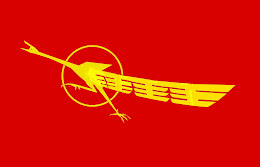





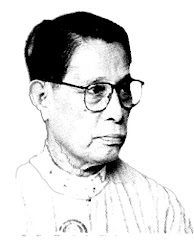


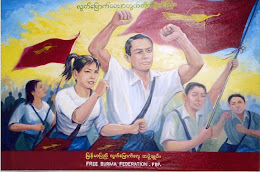





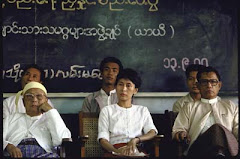

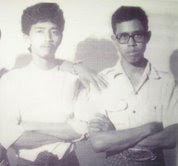

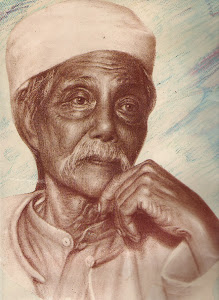
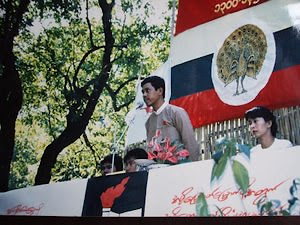
No comments :
Post a Comment